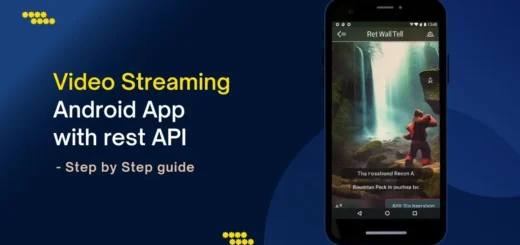What is the Search Intent definition Use these 4 ways?
Search Intent is a term that describes the process of determining what users want to do and how they want to do it. Search Intent allows marketers to improve their website’s relevancy and gain a better understanding of why people choose one option over another. In this blog post, we’ll explore four different ways in which you can use Search Intent for your business.
Table of Contents
1. Informational intent
The informational intent is the main intent of search engine optimization (SEO). It refers to the search engine’s goal of providing the user with the information they are looking for as quickly and easily as possible.
There are several different ways to define the informational intent of a search query. One way is to look at it in terms of what the user is trying to learn or find. Another way is to look at it in terms of what the user is trying to buy or sell.
The most important thing to remember when optimizing your website for search engines is to target your content toward the specific informational intent of your visitors. This will help you improve your website’s ranking in Google and other search engines, and it will also lead to more traffic and sales, Incrementors helps the beginner to grow digitally
2. Navigational intent
Search intent is a term that is used to describe the reason why someone is searching for a certain piece of information. There are three different types of search intent: navigational, contextual, and commercial.
People use search intent to determine which websites to visit. They may want to visit a website that has relevant information for their current situation or task.
People also use search intent to find specific items on websites. For example, a person may want to find a product that they saw on another website.
Finally, people use search intent to find specific products or services. For example, a person may want to buy a product from a particular store.
3. Transactional intent
Search intent is a term that is used to describe the reasons why people are searching for information online. There are three main types of search intent: transactional, navigational, and informational.
Transactional intent is the most common type of search intent. People use it to find information that they need to purchase something or to access a service.
Navigational intent is used to find information about a specific topic. People use it to find articles, pictures, and videos related to that topic.
Informational intent is used to find information that is not related to any specific topic. People use it to learn new information, find out the history of a topic, and find out about current events.
4. Commercial investigation
As a result, search engine companies are constantly trying to figure out which terms people are searching for and what they are looking for when they search.
One way that search engine companies determine this is by measuring the “search intent” of users. Search intent is the intention of a user when they are searching for information on a particular topic.
There are three main types of search intent: navigational, informational, and commercial.
Navigational search intent is the goal of finding information that will take someone from one point on the web to another. Informational search intent is the goal of finding information that will help someone understand or learn something new. Commercial search intent is the goal of finding information that will help someone make a purchase.
Incrementors seo optimisation services Search engines use different methods to measure these three types of search intent. For example, Google measures commercial search intent by counting the number of times a keyword appears in ads and content across its network.
How To Measure It.

Search intent is the intention of a user to find something on a website. It can be measured in different ways, but one of the most common methods is to ask users how they would search for a specific term on a website.
By measuring how users search for a particular term, you can get an understanding of how they are feeling about the site. For example, if you notice that users are searching for information about a product that you sell, this may be an indication that they are interested in buying it. Alternatively, if users are searching for information that is not related to your product, this may be an indication that they are unhappy with your site or product.
By understanding how users search for information on your website, you can improve the usability of your site and improve your marketing efforts.
How do I find out my search intent?
To understand your search intent, you first need to find out what keywords are being used in your search.
Access Google Search Console. In the left-hand column, click on “Search Engine Properties.” Under the “Search Engine Behavior” heading, you will see a list of all the keywords that have been used in your search. This list will include the number of clicks that each keyword has received, as well as the estimated revenue that it has generated for Google.
To find out your search intent, you can use this information to figure out which keywords are most important to you. If you want to target a specific keyword that is not showing up on the list, you can add it by clicking on the “Add a keyword” button and filling in the required information.
Understanding keywords: Keyword discovery and SEO questions
When you search on the internet, your intentions are important. When you search for information about a topic, you might have different intentions than when you search for something to buy.
Understanding keywords is important for two reasons. First, it allows you to find relevant content. Second, it helps you to determine which ads to display on the web pages that you visit.
Determining which keywords to use is a complex process. You need to understand what people are looking for when they perform a search. This involves discovering keywords through keyword discovery and SEO questions.
Keyword discovery is the process of finding keywords through research. You can use tools like Google AdWords or Google Trends to track how often certain keywords are being used. This information can help you to identify which topics are popular and which keywords are associated with them.
Once you have identified relevant keywords, it is time to start SEO questions. Seo questions are similar to survey questions in that they help you understand user behavior on the web. By asking SEO questions, you can learn more about people’s needs and wants. This information can help you to create better ads and content
Using the right tool for your needs: QuestionHub and PAA for question answering.

QuestionHub is a great tool for answering questions. It has a wide variety of question answering tools, including PAA (personalized answer amplification). PAA helps you to understand the intent of the user and tailor your answer specifically to them.
For example, if you are asked a question that has multiple answers, PAA will highlight which answer is most relevant to the user. This can help you to provide an answer that is more helpful and relevvvant to them.
QuestionHub is a great tool for getting answers to questions. It has a wide variety of question answering tools, including PAA (personalized answer amplification). PAA helps you to understand the intent of the user and tailor your answer specifically to them.
Read more: Why is Website Development the First Priority for Business Growth?







